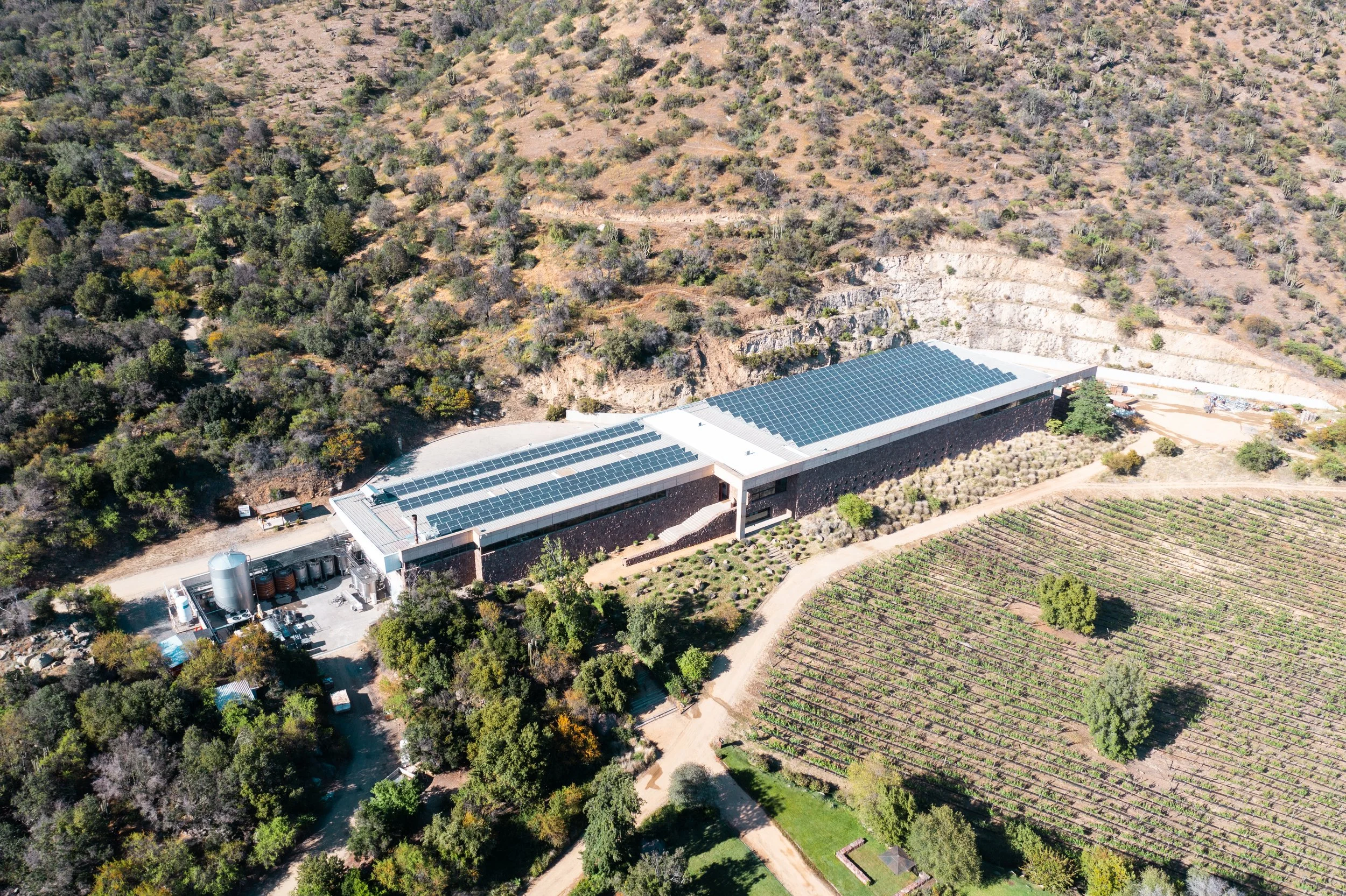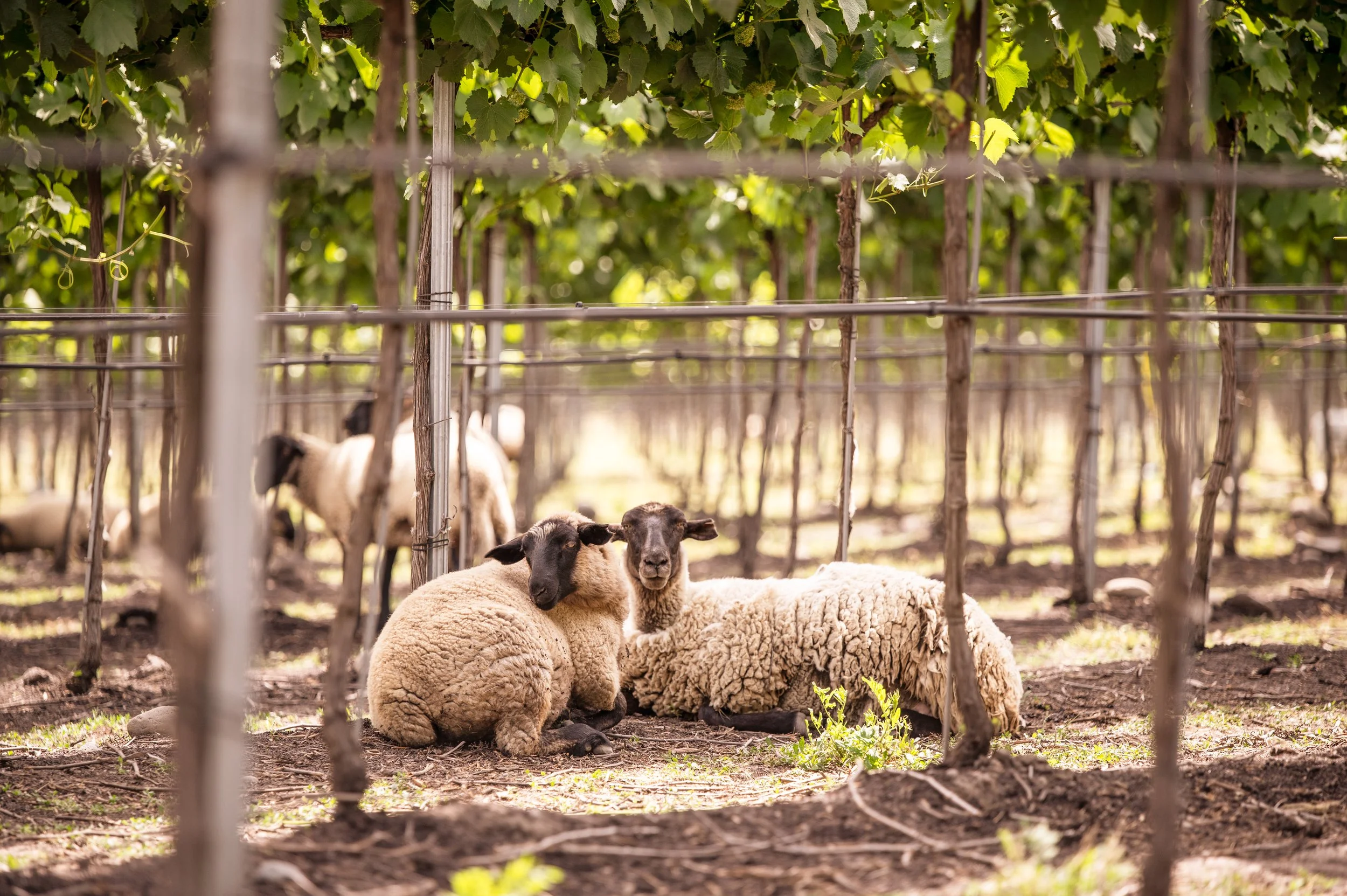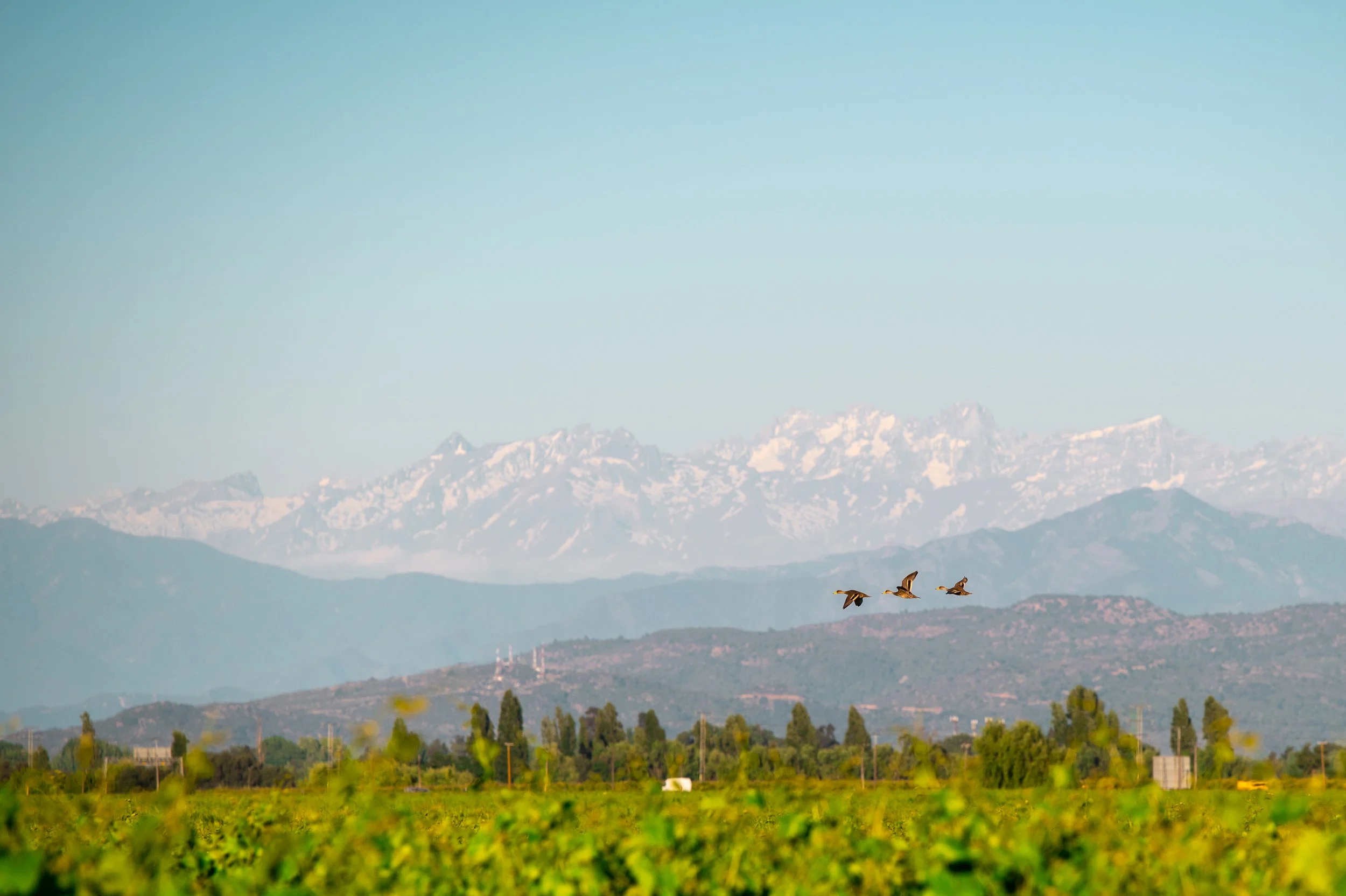A Shared Purpose: Carolina Gotuzzo on Wine, Culture and Sustainability
In Conversation with Tom Owtram
As Corporate Affairs & Sustainability Director at VSPT Wine Group, Carolina Gotuzzo is helping to shape one of South America’s most progressive wine companies. Based in Chile, VSPT has become a reference point for sustainable winemaking - from renewable energy and regenerative agriculture to its work with local communities.
With a background in communications and a growing specialisation in sustainable business, Carolina brings both conviction and curiosity to her role. For her, sustainability is not a department - it’s a culture that connects people, land, and purpose.
In this conversation, she reflects on her path into wine, the challenges of change, and what it means to lead with integrity in a world that’s redefining what responsibility looks like.
Journey into Wine & Sustainability
Carolina, before we dive into VSPT’s work, how did your career path lead you into the world of wine and sustainability?
I started out in communications, which gave me a solid grounding in how organisations connect with the world around them. During my three years in Europe, I cultivated a deep appreciation for sustainability. This was largely inspired by my Swedish roommate, as I adopted many of her eco-conscious daily practices. It was part of everyday life and conversation. That experience stayed with me.
When I returned to Chile, I wanted to join an international company that would keep me connected to those wider ideas and networks. Wine felt like a natural fit. It is rooted in culture, but it also crosses borders and connects people globally.
What first sparked your passion for sustainability?
My passion for sustainability was inspired by the entire Sustainability team at VSPT. They encouraged me to see things differently — not just as a matter of compliance or reporting, but as an opportunity to fundamentally rethink how business is done.
That was a very important shift in perspective for me. Since then, I have sought to deepen my knowledge through both study and practice. I am currently pursuing a Master’s degree in Sustainable Business, as it is a constantly evolving field. Today what drives me is conviction — the belief that this is the right way to work. While the challenges can sometimes be overwhelming, that conviction is what keeps me motivated.
VSPT’s Identity & Model
For those who may not know VSPT, how would you describe the group today?
I would describe us as a company in transition. We are still proud of our winemaking traditions, but we are also conscious that we have to adapt quickly to new realities. The sustainability model we have developed is a way of keeping ourselves on track — making sure we are not only talking about change but putting it into practice. It does not mean we have all the answers. It means we are willing to rethink, to test, and to learn as we go.
The group has cut its carbon footprint by 47% since 2019. What made that possible?
I do not see it as one single achievement. It has been lots of small steps, taken consistently. Shifting to renewable energy was important, but so was rethinking how we use water, how we manage the vineyard, how we move wine, and how we design packaging.
The real change has come from people across the business understanding why it matters. Once it becomes part of daily decisions, progress starts to feel more natural.
Climate Leadership
VSPT is a Gold Member of International Wineries for Climate Action. What does being part of that community bring?
For me, IWCA is about not feeling alone. When you work in sustainability, you are often faced with complex problems and it can feel heavy at times. Being part of IWCA means we can share knowledge with peers around the world, and it reminds us that others are on the same path.
It gives a sense of purpose but also accountability. It pushes us to measure ourselves with transparency and rigour.
Innovation, Regeneration & Culture
Beyond carbon, VSPT is working in areas like regenerative agriculture and biodiversity. Which initiatives excite you most right now?
Regenerative agriculture excites me because it is about more than reducing our footprint. It is about improving the health of the land for the long term.
In practice that means cover crops, biodiversity corridors, introducing animals when possible, and soil regeneration. It might sound technical, but when you see life returning to a vineyard — the insects, the birds, the vitality of the soil — it is very powerful. It gives you a sense of hope that change is possible.
Sustainability is also about people. How do you engage teams and partners in this journey?
Culture is fundamental. We have tried to create an environment where sustainability is not just a project led by a few specialists but something everyone can take pride in.
Externally, partnerships are vital. One that means a lot to me personally is Tayu, our collaboration with the Mapuche community in Malleco. The name means “ours” in Mapudungun, and it really captures the spirit of it. It is not just about wine. It is about building something together, respecting land and heritage, and learning from each other. For me, it shows that sustainability has to be human, not only technical.
Looking Ahead
On a personal level, what has been most rewarding in this role?
What I find most rewarding are the moments when people — whether colleagues, growers, or community partners — say they feel proud of what we are doing. It reminds me that sustainability is not just about strategies or targets. It is about people connecting to a shared purpose.
Looking ahead to 2030, what is your vision for VSPT?
My hope is that by 2030 we can look back and say we did not only adapt, but we also helped set an example of what responsible winemaking can be. Not because we wanted recognition, but because it was the right thing to do.
If we can be a company that leaves more behind than it takes — that restores, that empowers, that inspires — then I think we will have done something meaningful.




